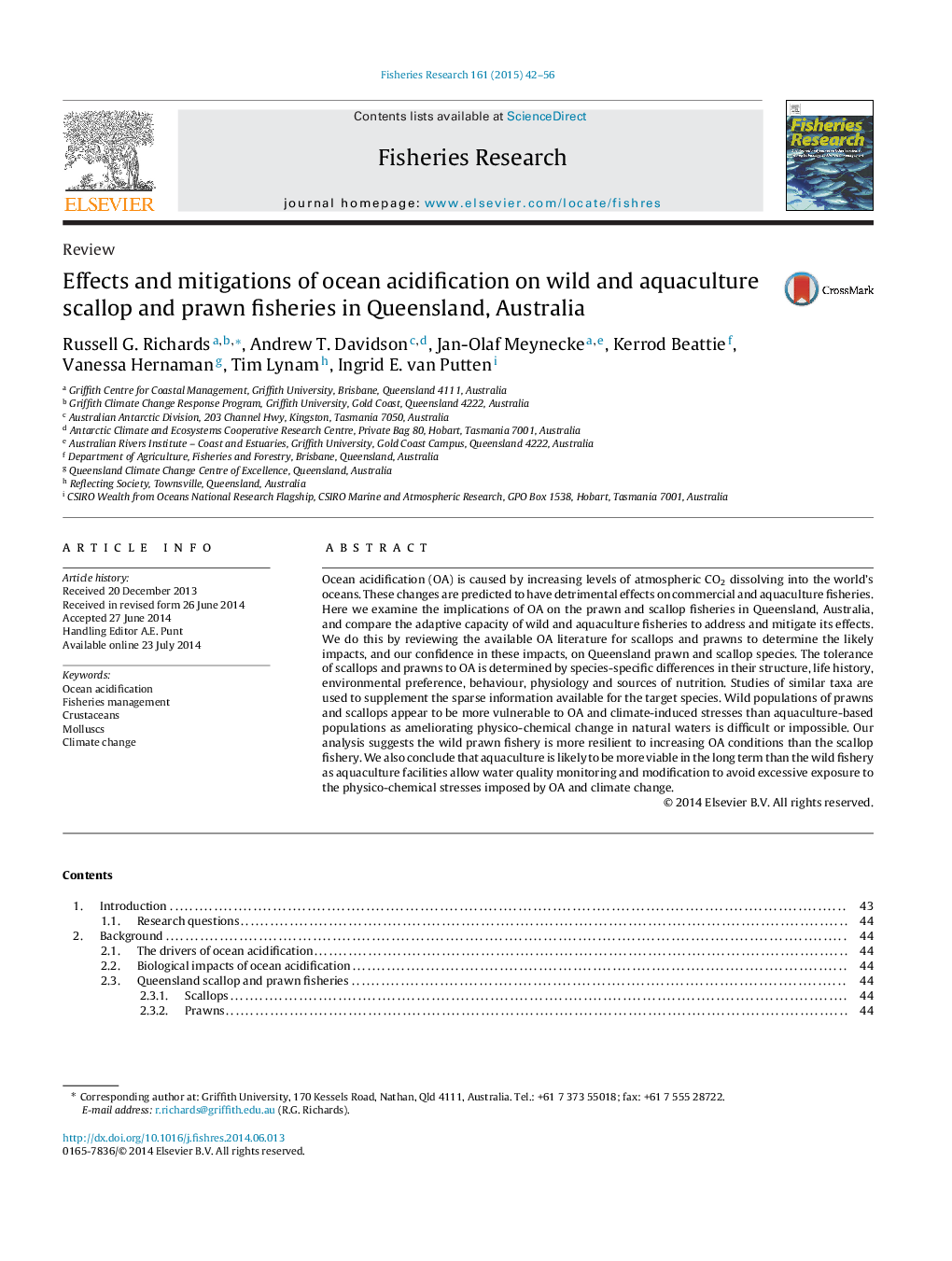| کد مقاله | کد نشریه | سال انتشار | مقاله انگلیسی | نسخه تمام متن |
|---|---|---|---|---|
| 6385770 | 1626807 | 2015 | 15 صفحه PDF | دانلود رایگان |
- We assess ocean acidification (OA) impacts on prawn and scallop fisheries in Australia.
- Possible changes in these fisheries and management options were identified.
- Wild populations appear more vulnerable to OA than aquaculture.
- Wild prawn fishery is more resilient to OA than scallops due to several factors.
- Management intervention specifically dealing with OA needs implementing.
Ocean acidification (OA) is caused by increasing levels of atmospheric CO2 dissolving into the world's oceans. These changes are predicted to have detrimental effects on commercial and aquaculture fisheries. Here we examine the implications of OA on the prawn and scallop fisheries in Queensland, Australia, and compare the adaptive capacity of wild and aquaculture fisheries to address and mitigate its effects. We do this by reviewing the available OA literature for scallops and prawns to determine the likely impacts, and our confidence in these impacts, on Queensland prawn and scallop species. The tolerance of scallops and prawns to OA is determined by species-specific differences in their structure, life history, environmental preference, behaviour, physiology and sources of nutrition. Studies of similar taxa are used to supplement the sparse information available for the target species. Wild populations of prawns and scallops appear to be more vulnerable to OA and climate-induced stresses than aquaculture-based populations as ameliorating physico-chemical change in natural waters is difficult or impossible. Our analysis suggests the wild prawn fishery is more resilient to increasing OA conditions than the scallop fishery. We also conclude that aquaculture is likely to be more viable in the long term than the wild fishery as aquaculture facilities allow water quality monitoring and modification to avoid excessive exposure to the physico-chemical stresses imposed by OA and climate change.
Journal: Fisheries Research - Volume 161, January 2015, Pages 42-56
